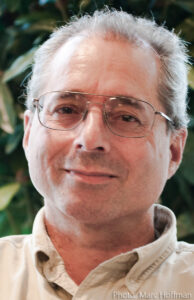
Marc Hoffman
My family has included activists going back at least three generations. My grandmother, a socialist, marched for workers’ rights. My parents staunchly supported civil rights and civil liberties, donating to organizations including the NAACP, ACLU, Southern Poverty Law Center. As I was growing up, they infused in me a strong ethic of recognizing and standing up against injustice.
My own activism probably started in 1968, when I established the first underground paper in my high school. Since then, I’ve lobbied to defeat regressive criminal sentencing, written a book and lectured on ageism, advocated for indigent parents, and participated in more marches and rallies than I can count. This is not to say 100% of my work entailed progressive causes, but I’ve never forgotten my radical roots.
In 2014 my wife and I moved to Duvall, a small municipality in the Snoqualmie River Valley, not far from Seattle. It’s surrounded by a natural beauty that rejuvenates us every day. We find it to be a place where we can strike up a conversation with a total stranger, joke with shop keepers, and, in a pinch, count on your neighbors.
That said, I’m aware that not everyone here has the same experience that I enjoy as a straight white male, college-educated and respected by the dominant establishment.
Like many small cities, Duvall is expanding and faces the challenges of a larger and more diverse population. And as it grows, national and local politics have emboldened a minority of voices promoting the kind of bigotry and intolerance that for years existed only below the surface. Many of my friends, including LGBTQIA+, find themselves hated and marginalized, for nothing they have done wrong, but simply for trying to be authentic about who they are.
As I’ve come to feel more a part of this community, it has become crucial to me to remember and defend the values I was raised to believe in—fairness, justice, and universal respect—that our communities and democracy depend on.
—Marc Hoffman
